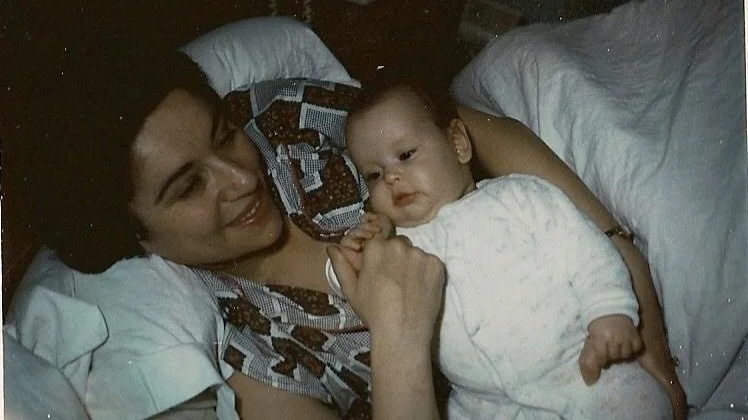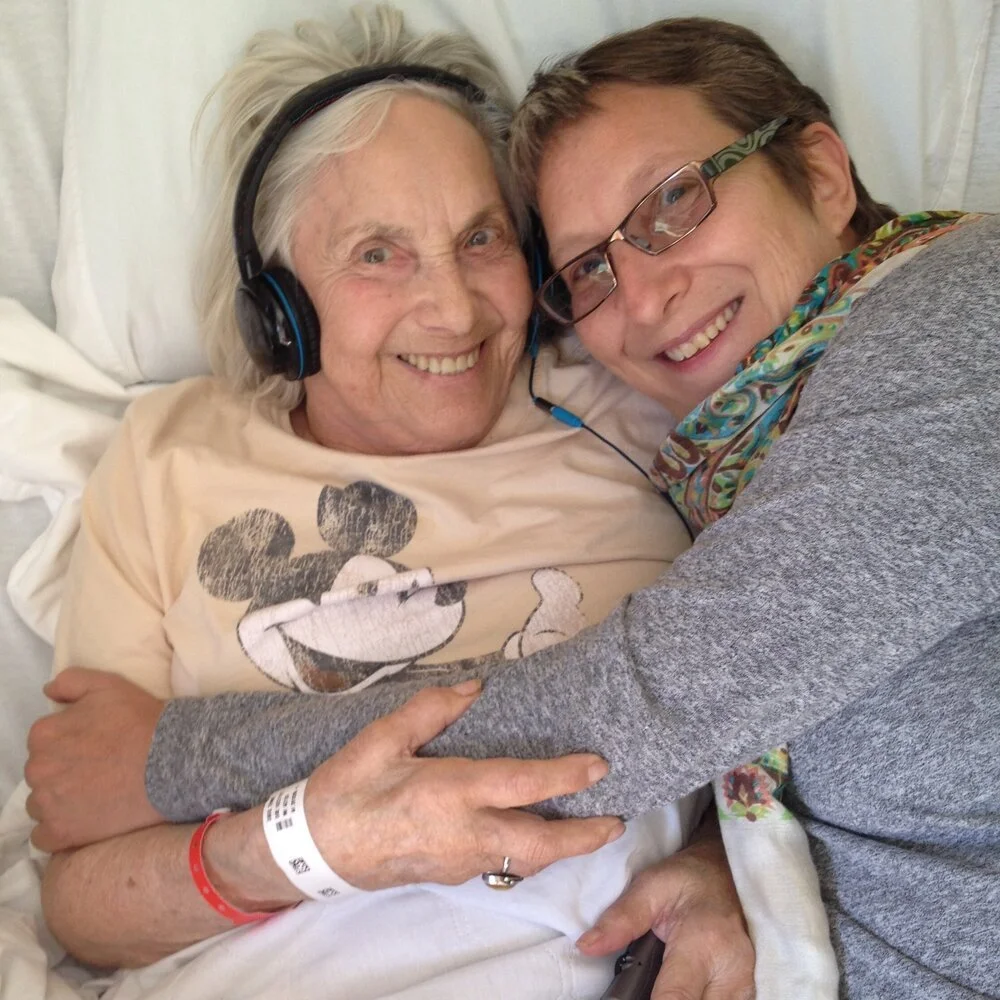Writing to Untangle our Truth
This November marks ten years since I took my first writing workshop at Esalen Institute in Big Sur. It was called “Writing What You Can’t Remember,” and the exceptionally talented and insightful teacher was Laura Davis, the best-selling author of the groundbreaking book, The Courage to Heal.
The free-writing method Laura taught that weekend helped me access countless memories. So many long-buried stories, evocative details, and multilayered emotions poured out of me with a force that took me completely by surprise. Enlightening, healing and often painful, this deep-dive writing felt dramatic and cathartic, like I was undergoing an emotional angioplasty.
Soon after that workshop, the Smithsonian museum reached out to invite me to write an article for their website about the start of Earthbound Farm, with a focus on the early days, when my brilliant inventor father created the first equipment we’d used to wash, weigh and package our organic baby greens. Insecure about my writing abilities, I reached out to Laura to see if she was willing to help me, and that’s how we began working together one-on-one.
Myra’s father, Mendek, with her children on their farm, circa 1996
My father had passed away just two months before that Esalen workshop. To help me reclaim my memories and process my grief, Laura created writing prompts that were so potent they inspired me to write every single morning for months. Remarkably, my teenage son, who was busily enjoying his first trimester away at college, called me many evenings to hear me read what I’d written. His interest made the process feel even more powerful and significant. Back then, I never would have guessed that I would become a writer, and that the content from those free-writing sessions would be immensely helpful years later when I was writing Quest for Eternal Sunshine.
Laura continues to be my writing mentor to this day, and I’m thrilled to be able to share her amazing work with you in the Spirituality and Health magazine article below, as well as in our upcoming, free 2-hour writing workshop, “Unraveling the Mother Knot,” on Saturday, November 12.
These days, I mostly only free-write during writing workshops, but the provocative “Unraveling the Mother Knot” prompts Laura created for our article have inspired me to once again embrace writing practice to help me explore my own complicated relationship with my mother more deeply. So much of my personal healing journey revolves around uncovering and dislodging the unconscious beliefs and emotional patterns that were firmly established when I was very young, some perhaps beginning as far back as in utero.
4-month old Myra with her mother, Edith Rubin, 1964
I hope you find the article of benefit and the prompts as intriguing and inspiring as I do. Laura and I would love to see you at our free 2-hour workshop on Saturday, November 12, at 10:00 AM Pacific (1PM Eastern). You don’t need to be a writer to attend, and everyone is welcome.
Myra’s article in Spirituality & Health magazine
Journaling Prompts to Unravel the Mother Knot
Guidance on Healing the Mother-Child Relationship from Bestselling Author Laura Davis
Our earliest years are our most formative, a tender time when we learn what it feels like to belong and be loved. Our relationship with our mother, or other primary caregivers, establishes the emotional tone and psychological patterns that will impact us for the rest of our lives. Even if we were lucky enough to have a mother who was present, loving, and capable, there is no such thing as a perfect parent. Every mother has her own unique history, emotional wounds, and painful struggles that will inevitably impact her children. As adults, spending time deeply and honestly reflecting upon this most primary relationship can be both enlightening and healing.
Laura Davis, bestselling author of the groundbreaking book The Courage to Heal, recently published a memoir about her tumultuous and complex relationship with her mother, The Burning Light of Two Stars. Now Davis leads writing workshops to help people explore this relationship. “Putting our stories on paper can greatly expand our perspective and help us find clarity,” Davis says. “Writing can help us remember our joys, process our pain, and foster compassion for both our mothers and ourselves.”
In her workshops, Davis guides people to explore their “mother knot”—the legacy of our deep and often complicated relationships with our mothers. Davis points out that our stories often morph over time and with age. “It’s okay to fully embrace your subjective truth today, knowing that it may be different tomorrow or years from now when life gives us a new perspective.” She quotes author Deborah Fruchey, who wrote, “Every time I look in the rearview mirror, the past has changed.”
Laura Davis
Laura with her mother in the hospital
A Free-Writing Practice to Untangle Your Innermost Truth
Davis teaches a free-writing practice first developed by author Natalie Goldberg, designed to uncover our unfiltered truth. And you don’t have to consider yourself a writer to do it.
Here are the basic guidelines:
1) Commit to a pre-determined time. If you’re new to this practice, set a timer for ten minutes. Gradually, you can extend the duration. Once you start, write continuously for the entire time period. “When you don’t allow yourself to stop,” Davis says, “you are forced to write from your heart and gut, not through the filter of your mind.”
2) Don’t edit as you write. As Davis explains, “One of the biggest mistakes people make is to write and edit simultaneously. Editing while you write will inevitably censor your rawest and truest thoughts. Don’t cross out or rewrite, and never worry about things like spelling, syntax, or grammar. Just write without stopping until the time is up. This is the secret to uncovering the real jewels, the deeper stories, the deeper truths. You can always come back and edit your work later.”
3) You are free to write “the worst crap in the world.” Davis urges people to write without expectations or a plan. “Don’t second guess yourself. Stick with your first thoughts. Go for the jugular. Be totally honest. Don’t keep anything back,” says Davis. “Just keep your hand moving, ignore distractions, and let it fly.”
4) Return to the prompt if you get stuck. Feel free to start each new sentence or paragraph with your prompt. If you are still stuck, try writing, “Here’s the part I never told anyone before…” or “Here’s the real truth…”
Myra (far right), with her mother and sister, Ruthie
Myra’s mother with Myra’s newborn daughter, Marea
Writing Prompts to Unravel the Mother Knot
Writing prompts make facing a blank piece of paper less daunting. They get you going by giving you a specific place to begin. “Prompts should be provocative and stretch you to enter new territory,” explains Davis. “They can help you remember things you forgot long ago. The most helpful prompts are specific: ‘My father’s hands,’ versus the generic, ‘Tell me about your father,’ which can feel overwhelming.”
Stick with a single prompt for the entire writing session. Read through the prompts below and follow your intuition about which to choose. Sometimes the prompt that repels or frightens you is the one that has the most charge and will yield the most unexpected gems, so try not to shy away from it.
“The direction our writing takes often surprises us,” Davis says. “Allow yourself to be spontaneous and go where these prompts lead you. Hold the reins loosely. The prompts are meant to open you up, so go with the flow and meander. Trust your gut and let your pen lead.”
Davis loves creating compelling prompts that inspire deep writing. Below are thirty of her favorites to help people unravel the mother knot.
In my mother’s kitchen
What my mother taught me
What my mother failed to teach me
My mother’s hands
Tell me about something that happened behind a wall
Tell me about an object you strongly associate with your mother
Tell me about a secret—one your mother kept from you or one you kept from her
Things my mother still doesn’t know about me
Things I still don’t know about my mother
A gift my mother brings/brought to the world
Tell me a story you were told repeatedly about your mother’s early life
Lies my mother told me
Lies I told my mother
Tell me about an aspect of your mother’s life that has nothing to do with being your mother
Describe a time you observed your mother when she thought she was alone








